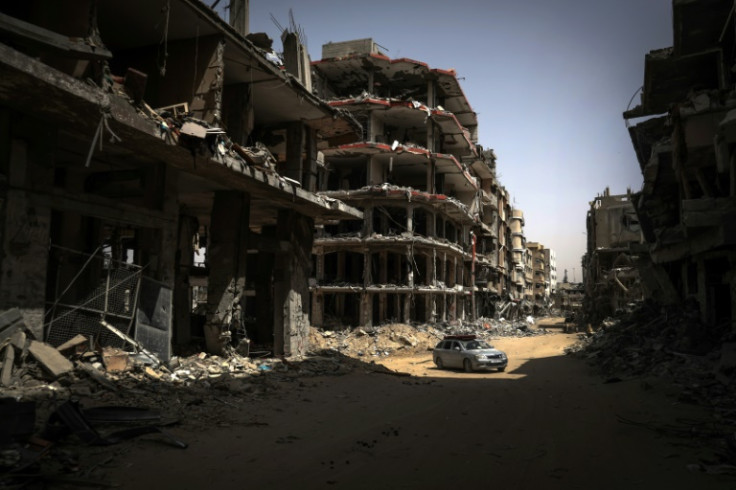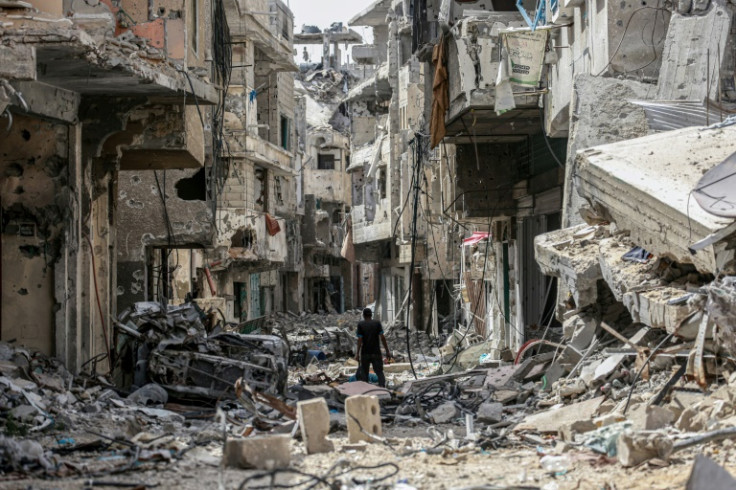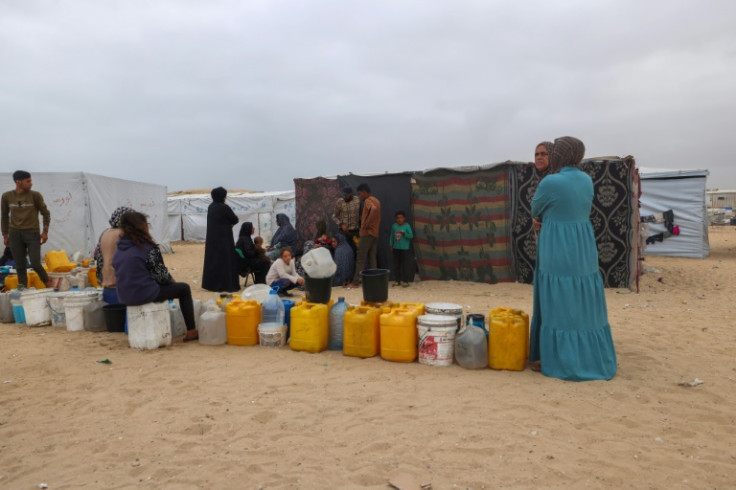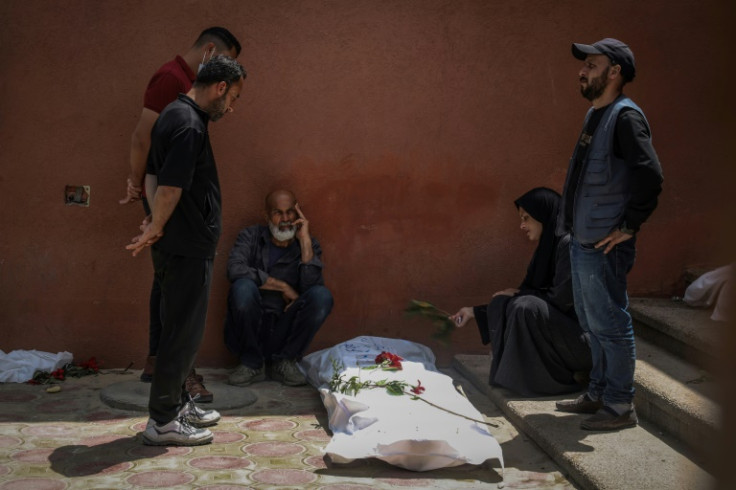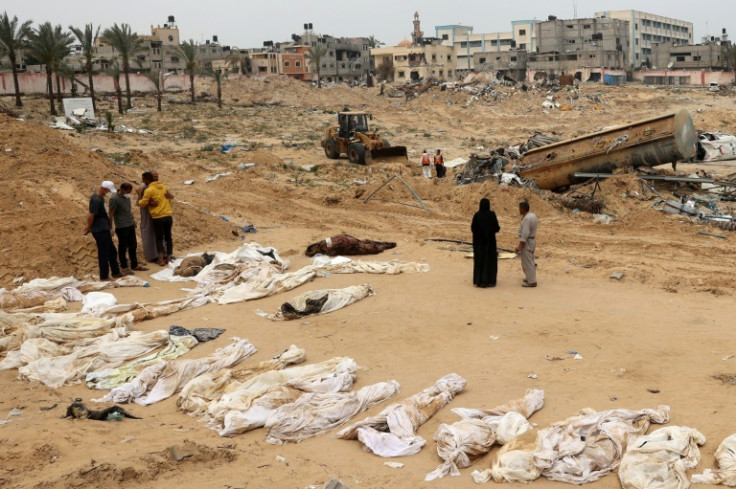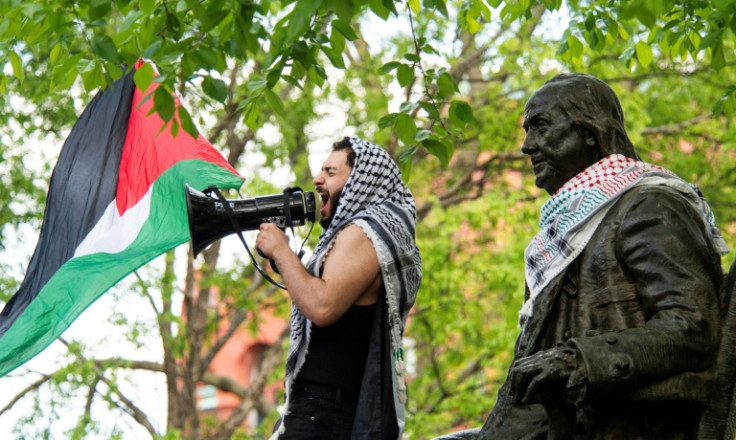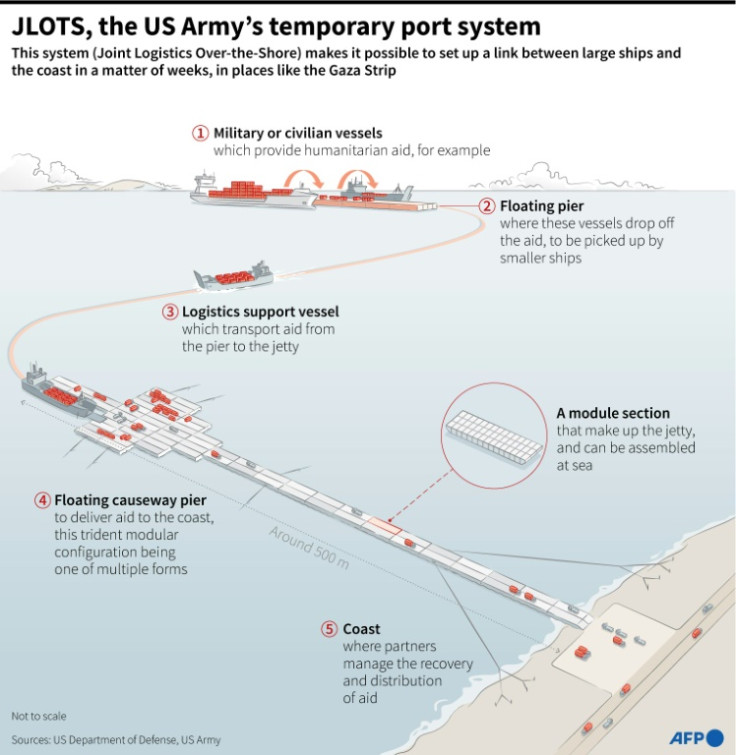
A delegation from mediator Egypt is travelling to Israel on Friday, a source close to the Israeli government told AFP, in what local media said is a bid to reignite stalled hostage-release negotiations.
The effort comes alongside preparations for a military push against Hamas militants in southern Gaza's Rafah, and with spillover from the Gaza war leading to stepped-up exchanges of fire over Israel's northern border with Lebanon.
Israel's army on Friday said missile fire near that border killed an Israeli civilian.
A Hamas official told AFP that any push into Rafah, where much of Gaza's population is sheltering, would threaten negotiations.
Qatar, Egypt and the United States have mediated truce and hostage-release talks, so far without success since a one-week halt to the fighting in November. That truce saw the exchange of 80 Israeli captives in return for 240 Palestinians held in Israeli prisons.
Since then, global criticism of the war's toll on Palestinian civilians in Gaza has escalated, as have calls for militants there to release their captives.
The war began with an unprecedented Hamas attack on October 7 that resulted in the deaths of about 1,170 people in Israel, according to an AFP tally of Israeli official figures.
Israel vowed to destroy Hamas, with a retaliatory offensive that has killed at least 34,305 people in Gaza, mostly women and children, according to the Hamas-run territory's health ministry.
During their attack, militants seized hostages, 129 of whom Israel estimates remain in Gaza, including 34 the military says are dead.
The source told AFP that Egypt's delegation was travelling to Israel "for security coordination".
Several Israeli media outlets, citing unnamed officials, said on Friday that the war cabinet discussed a new plan for a truce and hostage release, ahead of the Egyptian delegation's visit.
Aid groups warn any Rafah invasion would add to already-catastrophic conditions in Gaza where, according to the World Food Programme, famine is "a real and dangerous threat".
Senior Hamas official Ghazi Hamad told AFP that Israel "will not achieve what it wants" in Rafah.
After nearly seven months of war Israel had not achieved its goals, "whether eliminating Hamas or returning the captives", he said.
Hamad warned that an invasion "will undoubtedly threaten the negotiations" and show "that Israel is interested in continuing the war".
After mediators failed to secure a truce for the Muslim holy fasting month of Ramadan, which ended early this month, Qatari Prime Minister Mohammed bin Abdulrahman bin Jassim Al Thani said last week that Qatar was reassessing its role.
Opposition to a military operation in Rafah extended to protesting university students in the United States.
"Stop the invasion! Hands off Rafah!" said a sign among a pro-Palestinian encampment at George Washington University in the US capital.
The campus is one of many across the country -- Israel's biggest military supplier -- where protests over Israel's war with Hamas have spread.
The Pentagon said Thursday that the US military had begun construction of a "temporary pier" off Gaza's coast to boost shipments of desperately needed aid.
US President Joe Biden announced the plan in early March, as international calls intensified for Israel to facilitate more aid access to the territory.
The following month an Israeli drone strike killed seven workers, most of them foreign, from US-based charity World Central Kitchen. They had just overseen the unloading of food aid delivered by sea from Cyprus.
Israel said the strike was a mistake. A ceremony at Washington's National Cathedral honoured the slain workers on Thursday.
Also Thursday, leaders of the United States, Britain, France and more than a dozen other countries said they "strongly support the ongoing mediation efforts" and called for Hamas to release the remaining captives which "include our own citizens".
In a separate appeal to Hamas, Dani Miran, the father of Hungarian-Israeli hostage Omri Miran, said: "Please confirm the deal to prevent the killing of Israelis, Gazans, Israeli children, Gazan children. Let's be human beings."
Israeli demonstrators have intensified protests, including on Thursday in Tel Aviv, for their government to reach a deal that would free the captives, accusing Prime Minister Benjamin Netanyahu of prolonging the war.
The Gaza war has led to violence between Israel and Iran's proxies and allies, driving up regional tensions.
Israel has struck increasingly deeper into Lebanon, while the Hezbollah movement, based in Lebanon and backed by Iran, has stepped up attacks on Israeli positions across the border.
On Friday the Israeli army said a civilian was killed by anti-tank missiles fired towards "the area of Har Dov", which refers to the disputed Shebaa Farms district.
Hezbollah said it had destroyed two Israeli vehicles in the Kfarshuba hills overnight in a "complex ambush" on a convoy using missiles and artillery.
The Israeli army did not comment directly on the claim.
It said Israeli fighter jets struck Hezbollah targets around Shebaa village in southern Lebanon.
They also hit "Hezbollah operational infrastructure in the area of Kfarshuba and a military compound in the area of Ain El Tineh in southern Lebanon", the military said.
Lebanon's official National News Agency reported that Shebaa village, Kfarshuba and Helta were targeted by "more than 150 Israeli shells", leaving homes damaged.
